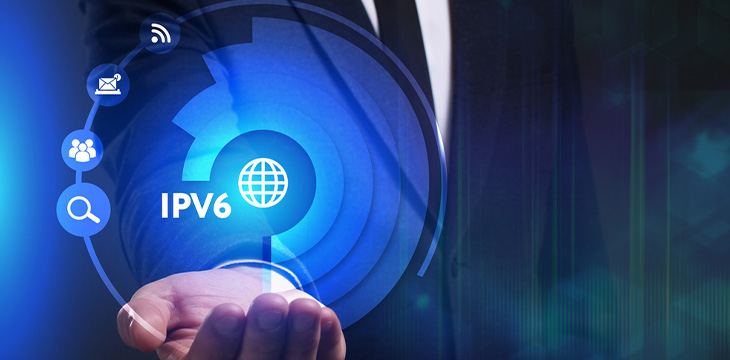|
Getting your Trinity Audio player ready...
|
IPv6 will give the world a more secure, more-connected internet. Bitcoin and IPv6 complement each other with similar transaction and packet header structures. The BSV blockchain is ideal for storing and managing data in the IPv6-enabled, everything-connected world.
Exactly how this will come about was the theme for the IEEE 5G/6G Cybersecurity Digital Trust Summit at Mohammed B University in Rabat, Morocco, this week.
Presenters at the event included IPv6 Forum President Professor Latif Ladid, nChain Licensing Chief Science Officer Dr. Owen Vaughan, and Bharat IPv6 Forum Chairman Dr. Satya Gupta. All stressed the need for continuing efforts in education and a determination to evolve the internet into something more secure than today’s model—using IPv6’s built-in security features and the timestamped guarantees of blockchain transactions and recorded data.
Internet and blockchain ‘generations’
Professor Ladid gave a short history of the “generations” that led to today’s internet, from Vint Cerf and Bob Kahn’s original ARPAnet to the OSI Internet, IPv4/NAT internet still widely used today, and the new IPv6 internet or “global internet.”
End-to-end communications and a proliferation of new devices online are creating a totally-networked world comprising human users and IoT devices/sensors. The goal is to have an IPv6-only internet by 2025, and countries like France, Germany, India, and the United States have made strong moves towards that aim in the past couple of years.
“IPv6 brings user experience from the economy class to the business class” (and NAT is luggage class), Ladid said.
Like the internet, blockchain has also seen multiple “generations”—the first being decentralization of payments (money), the second smart contracts and decentralization of markets, and the third bringing entire smart cities, IoT, government and health services, scientific research and art onto one blockchain record made secure with “digital keys.”
Making payments and PKI more secure with Bitcoin
nChain’s Owen Vaughan presented strategies more specific to Bitcoin, noting that although three ledgers use that name, only (perhaps less well-known) BSV offers the unbounded scaling capacity required and the ability to produce blocks of transactions in an energy-efficient manner.
“Bitcoin can only sustain itself through real-world use cases,” he said.
Bitcoin enables user-to-user payments using the more scalable BIP 270 method, where Bob and Alice (the parties to a transaction) exchange data with each other first and then broadcast the transaction to the network, where it will be processed and recorded forever on-chain. This way, it’s not necessary for each party to monitor the network themselves or retain complete blockchain records. As long as the validity of a transaction can be verified in the future, its data remains secure.
Vaughan went on to describe how blockchain can improve public key infrastructure (PKI). The most-used model today is based on certificates and certificate-issuing authorities. However, this has several problems, including not always knowing when a certificate was issued or having up-to-date information on whether a particular certificate has been revoked.
Blockchain can keep these records up-to-date, and checking processes can be automated. Revoking a certificate would be as simple as sending a transaction, and those relying on the certificates could receive instant notifications. The blockchain also works as an independent timestamp, is more private and scalable, and allows for more versatile certificates, such as time-limited certificates or one-time access tokens.
Answering an audience question about the possibility of malicious miners, Vaughan also mentioned the economic incentives behind running a large-scale proof of work (PoW) transaction processing (mining) operation gave them more accountability and especially more than proof-of-stake (PoS) networks, which are more prone to manipulation due to the ability to move large “stakes” around between unknown controllers.
India alone needs 10+ billion unique IP addresses
Dr. Satya Gupta presented from his homeland in India, where he said IPv6 would finally mean a “ubiquitous internet” that is open, agile, secure, trusted, accountable… and future-proof. This is necessary in the “new normal” world where employees often need to work from a home network with all the same security and multi-device features of their office network.
NAT (network address translation) is absent in IPv6 and no longer required, thanks to IPv6’s massive unique IP address proliferation. Each device can have its own IP address, making them more visible and enabling a proper “internet of things” (IoT) since everything from devices to simple sensors can have its own unique place on the network. Blockchain-based CGAs (cryptographically-generated addresses) also prevent “spoofing” and “man-in-the-middle” attacks.
Calling IPv6 and blockchain architecture “layers in the Internet of Value,” he praised India for its initiatives and gains in building awareness and deploying IPv6 across the country. Continued collaboration between advocacy groups like the IPv6 forum, ISPs, universities/research labs, and “stakeholders” in business and government. India has been at the forefront of IPv6 deployment out of necessity, he said: if 1 billion people each have ten devices, it will need 10 billion IP addresses (with IoT requiring still billions more).
As the world network scales, it needs a scalable ledger to keep a record of all its data. The BSV blockchain is the only one capable of this feat, with the potential to process trillions of transactions per day, with everything timestamped and recorded, for verification at any point in time.
nChain is calling for research papers exploring the growing field of blockchain and artificial intelligence (AI) for a workshop event as part of the IEEE COINS 2023 event, which will take place from July 23-25 in Berlin (and online). The deadline for papers is March 15, 2023.
Watch Why IPv6 is a major research program for nChain

 02-13-2026
02-13-2026 




